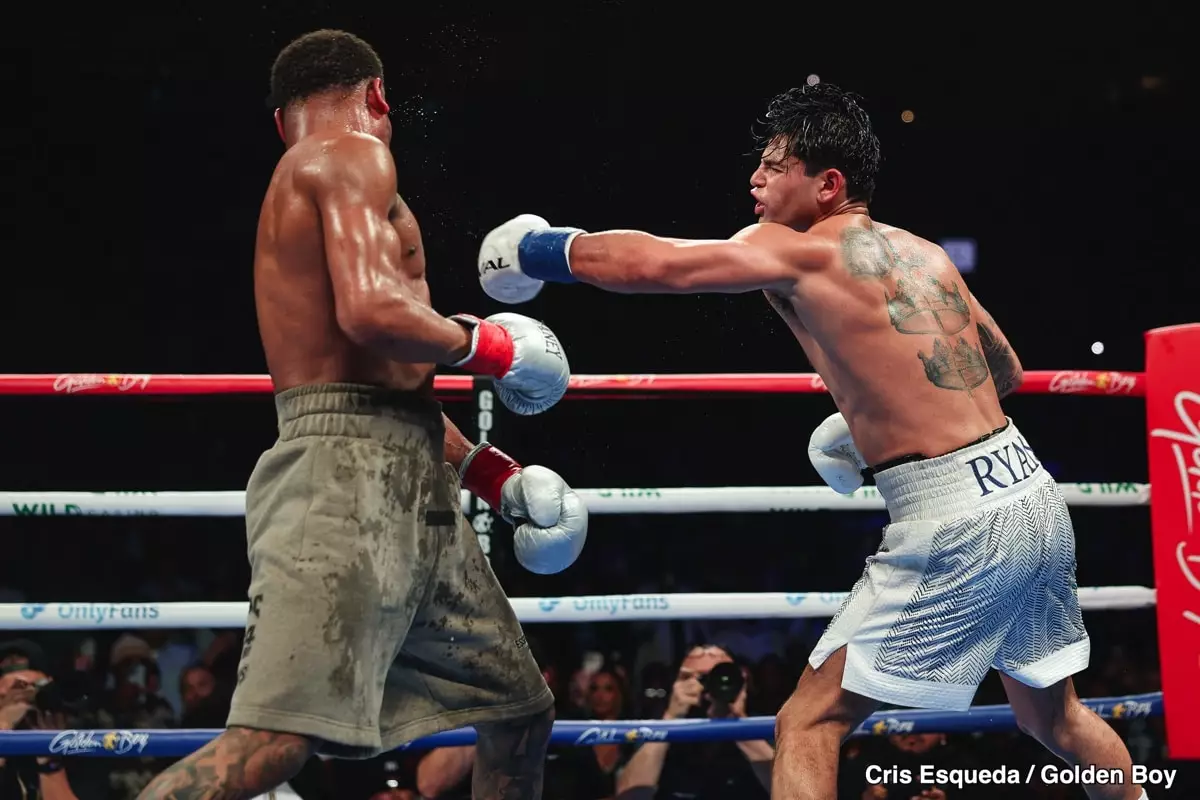The world of professional boxing often hinges on strategic choices that can dramatically influence a fighter’s career trajectory. A recent decision by the camps of two prominent fighters, Ryan Garcia and Devin Haney, has stirred considerable debate among fans and analysts alike. As the buzz around their prospects intensifies, one must consider the implications of their decisions not to engage in a direct rematch during the upcoming May 2nd fight card in Times Square, New York.
In boxing parlance, a “tune-up” match serves as a preparatory bout, an opportunity for fighters to regain momentum, shake off any lingering doubts, or recover from a prior defeat before taking on a significant opponent. This strategy resonates with combatants at various stages of their careers, particularly following a loss. In this scenario, the focal point lies in determining which fighter—Haney, recently humbled by Garcia, or Garcia, who is keen on reinforcing his reputation—benefits most from this strategic aside.
Garcia, boasting a record of 24 wins with just one loss, appears to be in a favorable position as he faces Rolando “Rolly” Romero—an opponent deemed less threatening. Romero’s previous knockdown by Isaac Cruz elevates Garcia’s chances for a decisive victory, thereby enabling him to enter a potential rematch against Haney with boosted confidence. In sports, particularly boxing, a strong comeback can revitalize a fighter’s reputation and sharpen their competitive edge.
Conversely, Haney finds himself entering a duel against former unified champion Jose Ramirez, a more formidable prospect with a record of 29 wins against 2 losses. Before losing to Josh Taylor, Ramirez held the reputation of being a top-tier fighter, having demonstrated his prowess in the ring. This matchup begs the question: is Haney’s decision to pursue a tough opponent without first solidifying his own standing a reckless gamble?
A recent conversation with boxing commentator Ade Oladipo sheds light on the situation. Oladipo expressed critical sentiments regarding the choices made by both teams, asserting that the failure to promptly engage in a rematch isn’t merely a missed opportunity but a miscalculation that could have severe consequences. “Whether it be Devin and his team or Ryan and his team, someone said no to them not fighting each other,” he remarked. This lack of accountability indicates deeper issues in fight negotiations, where the urgency to secure high-stakes matches is often thwarted by tactical prudence.
Oladipo’s insights reflect a broader sentiment within the boxing community, where fans crave matchups that retain high stakes without unnecessary detours. Looking back at high-profile matchups—such as Tyson Fury’s rapid rematch with Oleksandr Usyk—the transparency and swiftness of negotiations generate excitement and maintain the integrity of the sport. It’s this kind of energy that many believe should characterize the potential Garcia-Haney rematch, rather than allowing fighters to revisit old rivalries and patterns of delay.
As Haney prepares to face Ramirez, the potential pitfalls cannot be ignored. The specter of vulnerability looms large over a fighter who has just faced defeat, particularly when up against an opponent of Ramirez’s caliber. To fully understand the risks, a closer examination of Haney’s psyche is warranted. After having been knocked down three times in his previous bout with Garcia, should he be stepping into the ring with an established contender so soon? The stakes, as such, may not merely be about victory or loss; they could redefine his career trajectory.
The psychological component of boxing cannot be overstated. Fighters often grapple with past failures, which manifest in their performance. Garcia, having recently handed Haney that loss, must wrestle with a weight of expectation; however, he also possesses the confidence that comes from success. Conversely, Haney’s need to redeem himself may propel him, yet the risk of another defeat could have devastating repercussions.
As the boxing community watches these developments unfold, one thing remains clear: choosing the right path is crucial. Camaraderie and accountability among fight teams play a significant role in ensuring stable career paths for the fighters at the center of it all. With a significant rematch looming, stakes are high, and both camps must reckon with their decisions.
Boxing remains a game of strategy, foresight, and skill. The forthcoming matches will not only serve to solidify or alter each fighter’s legacy, but they will also send ripples through the boxing landscape, influencing upcoming generations. As Garcia and Haney prepare for their respective bouts, the true measure of their decisions will be revealed in the ring—a solemn reminder that every fight is not simply about the match itself but the broader narratives that shape the world of boxing.

